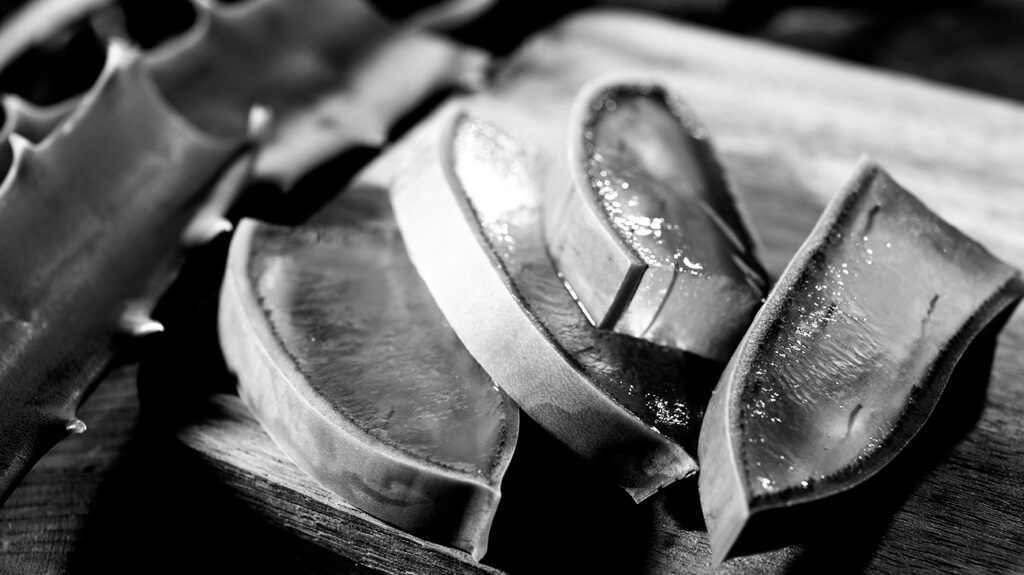Home remedies for getting rid of a bruise include ice, arnica, vitamin K creams, and eating foods that contain bromelain, such as pineapple.

Bruising is a typical response to an injury. Bruises occur when tiny blood vessels become damaged, leaving behind blood trapped beneath the skin. Eventually, the body will reabsorb the blood as the injury heals.
Bruises do not necessarily require any treatment. However, some home remedies may speed up healing, minimize their appearance, and prevent them from happening in the first place.
The following home remedies are safe for minor bruising and may help get rid of bruises faster.
Ice, or cold therapy, can temporarily reduce blood flow to the skin. Some evidence indicates that this may reduce bruising.
A 2020 review and meta-analysis of previous research found that applying ice for
For this method, wrap ice or a cool pack inside a clean towel and gently press to the bruised area for several minutes. Do not press ice directly onto the skin.
Arnica montana, or arnica, is a herb many people use for pain and bruising. This is because it contains compounds that have an anti-inflammatory effect.
A 2021 review of previous research found that 18 out of 25 studies on arnica showed it significantly helped with bruising. However, not all of the studies reached the same conclusion. The author highlights a need for more research.
Bromelain is a mixture of enzymes that occur naturally in certain fruits, such as pineapple. These enzymes may have anti-inflammatory properties and help reduce bruising.
A 2021 study found that drinking pineapple juice before and after facial surgery reduced postsurgical bruising and led to a faster recovery. The participants drank 350 milliliters twice daily for 7 days before the surgery and 7 days after.
An older 2014 study of 45 participants found that oral bromelain improved pain and swelling after tooth extractions compared to a pain medication and a placebo.
People can try this remedy by eating pineapple or drinking pineapple juice. Alternatively, they can try oral bromelain supplements if a doctor recommends it. Bromelain can interact with other medications, so it is important to consult a doctor before taking it.
A 2021 review states that several studies have found vitamin K creams and ointments can reduce facial bruising. It appears to work by reducing blood accumulation under the skin. It also improves the appearance of visible blood vessels, such as spider veins, due to aging.
The review mentions one study that found applying 1% vitamin K cream twice daily helped to resolve bruising. Another found that 1% vitamin K and retinol had a similar effect.
Speak with a doctor before using topical vitamin K, retinol, or other pharmaceutical-grade skin care products. They can have side effects and are not suitable for everyone.
Traditionally, people have used Aloe vera to treat many skin conditions. Some evidence suggests it may also be beneficial for bruising.
A small 2022 study of people about to undergo coronary artery bypass graft (CABG) surgery found that applying aloe vera during recovery helped to improve wound healing, reducing bruising around the site of the operation in comparison to controls.
However, the study only involved 35 people and focused on healing open wounds rather than bruises alone. More research is necessary to determine if aloe vera works for other types of bruises.
Bruises are usually not serious, and most will go away on their own after around 2 weeks. However, frequent or unexplained bruising could indicate a medical problem. Symptoms to see a doctor about include:
- bruises that appear without an obvious injury
- bruising very easily
- bruises in strange places, such as the back or abdomen
- bruises that suddenly appear after taking a new medication or supplement
Certain medications and medical conditions can lead to an increase in bruising. However, a person should not stop taking a medication without first speaking with their doctor.
Contact a doctor right away if a person develops:
- a bruise on the leg, along with increasing swelling, pain, and warmth
- swelling and pain in the groin, thigh, or back of the knee
- signs of infection, such as fever, streaks leading away from the bruise, or pus drainage
There is no instant cure for bruising. However, most bruises are not cause for concern. They will typically go away on their own within a couple of weeks.
Some home remedies may help to reduce their appearance and help them heal faster, such as ice, arnica, aloe vera, and pineapple juice.
Do not take oral supplements for bruising without talking with a healthcare professional first.
If bruising continues or does not get better, seek medical advice.
